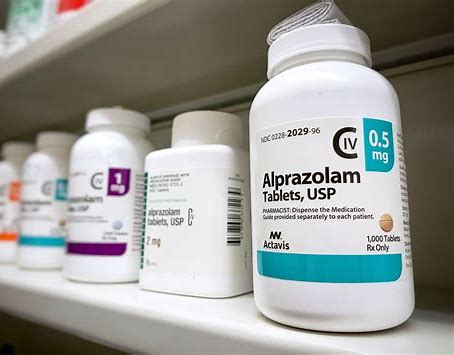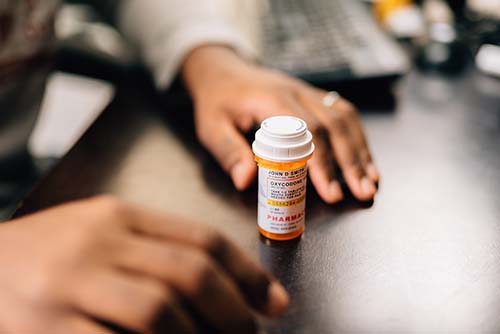Alcohol addiction is an incredibly sensitive and complex issue with far-reaching psychological and social impacts. It can affect every aspect of people’s lives, from relationships to finances to well-being. But often overlooked in the conversation about alcohol addiction are the immense changes it makes on a biological level – how it directly affects the body’s systems and organs over time.
In this post, we’ll explore what these effects are, focusing on the most common physical implications of long-term drinking habits. We’ll dive into how alcohol abuse causes adverse reactions throughout various parts of your body – from damage caused by dehydration to increased risks for health issues like liver disease or cancer. Although you may not see them right away, consistent alcohol consumption can have lasting damaging effects that extend beyond just the visible surface-level symptoms.
How Alcohol Addiction Happens
When alcohol is ingested, it enters the bloodstream and travels to various parts of the body. It binds to certain receptors in the brain, resulting in its intoxicating effects. But prolonged alcohol use can lead to changes in both the structure and chemistry of the brain itself – a condition known as alcohol addiction or alcohol dependence.
Alcohol addiction manifests differently for everyone: some may be addicted physically, while others may have an emotional dependency on alcohol. Alcohol affects different parts of the brain, including the areas involved in decision-making, impulse control, and pleasure. So when alcohol is regularly consumed over time, it can create an imbalance in these regions of the brain that keeps people wanting more alcohol to achieve a feeling of satisfaction or pleasure.
Regular alcohol use can lead to tolerance, and an individual may experience withdrawal symptoms without it if not managed properly. With alcohol addiction, alcohol becomes a central focus of one’s life, and the body is no longer able to function or respond normally without it.
Physical Effects of Alcohol Addiction
After prolonged alcohol use, the body begins to suffer from its effects. Long-term alcohol abuse has many implications for physical health, ranging from minor issues such as dehydration or nutrient deficiencies to serious ones like liver damage or cancer risk. Here are some of the most dangerous physical implications alcohol can have on your body:
Dehydration
Alcohol is a diuretic that causes the body to produce more urine than normal. This leads to dehydration, which in turn increases fatigue and decreases coordination. It can even lead to serious medical problems such as kidney failure if not addressed promptly. Furthermore, dehydration from alcohol inhibits the body’s ability to absorb vital nutrients such as vitamins, minerals, and proteins.
Liver Disease & Damage
Long-term alcohol consumption puts an excessive strain on the liver, which is very likely to lead to inflammation and scarring. This can eventually progress to alcohol-induced liver disease, which is a range of conditions that cause the organ to malfunction and be unable to properly process alcohol or other toxins.
Heart Disease and High Blood Pressure
Alcohol use can increase one’s risk for heart disease, stroke, and high blood pressure due to its damaging effects on the cardiovascular system. Studies show alcohol consumption increases levels of fats in the blood, which leads to decreased oxygen flow and hardening of the arteries – a condition known as atherosclerosis. Additionally, alcohol can also damage cells in the heart muscle that are needed for normal rhythm, leading to an irregular heartbeat.
Cancer Risk
Research has shown that alcohol increases the risk of certain types of cancer, such as liver cancer and breast cancer, as well as those affecting the mouth, throat, and breast. The exact mechanism by which alcohol causes cancer is not certain, but it is thought that it produces carcinogenic compounds that can damage DNA, increasing your chances of developing cancer.
Pancreatitis and Gastrointestinal Issues
Alcohol consumption can damage the pancreas, leading to pancreatitis – an inflammation of the organ that causes abdominal pain and nausea. This can eventually lead to digestive problems, such as ulcers in the intestines, as alcohol damages the cells lining the stomach walls. Additionally, alcohol can cause gastritis (inflammation of the stomach lining) or esophagitis (inflammation of the esophagus).
By understanding the physical effects alcohol can have on your body, you can make informed choices about alcohol consumption that will benefit your overall health. Taking steps to reduce alcohol intake or abstain completely can lead to a healthier lifestyle and improved well-being.
Signs to Quit Alcohol
Deciding to quit alcohol is a personal choice, but there are many signs that the habit has become a problem. If alcohol consumption is causing issues in your life, such as difficulty concentrating on tasks, strained relationships with family or friends, or financial problems due to excessive drinking, it may be time to rethink your alcohol use.
Additionally, if you notice yourself blacking out more frequently after drinking alcohol or making risky decisions while under the influence of alcohol, these are signs that alcohol is taking over your life, and it’s time to quit.
If you suspect you might have an alcohol addiction problem, it is important to seek help from professionals who can guide you through recovery. With proper treatment and support, alcohol addiction can be managed, and individuals can go on to live healthy lives free of damaging substances.
Alcohol Detox Center in Muscle Shoals, AL
Genesis Medical Detox offers alcohol detox services in Muscle Shoals, AL, for those struggling with alcohol addiction. Our compassionate and experienced addiction specialists and medical professionals provide individualized care to help clients safely and comfortably navigate their alcohol detox process.
We understand that alcohol addiction can be difficult to overcome without the right support, so we strive to provide a safe haven where our patients can begin the journey toward sobriety.
We work closely with all of our clients every step of the way to ensure they have all the resources necessary for long-term recovery from alcohol addiction. Contact Genesis Medical Detox Center today for more information about our alcohol detox services.
Note: This content is not intended to provide medical advice or serve as a substitute for professional medical care. Please seek the help of a medical professional if you or someone close to you is struggling with alcohol addiction.









